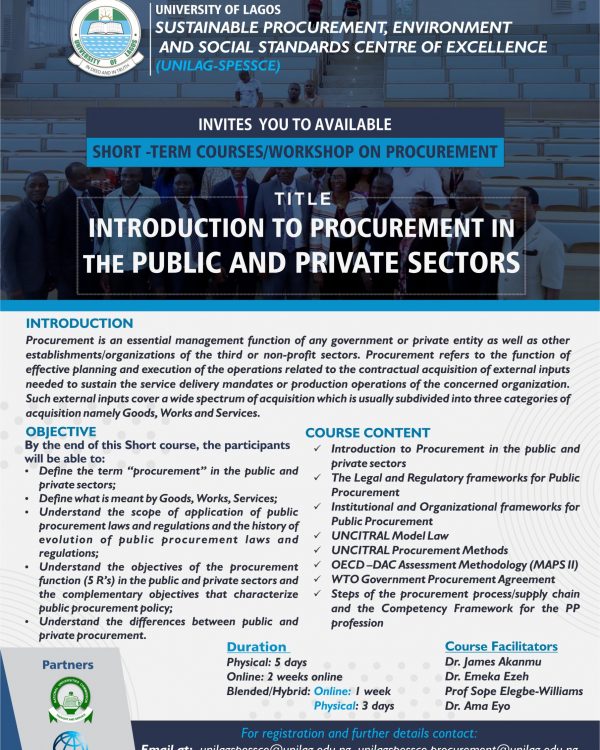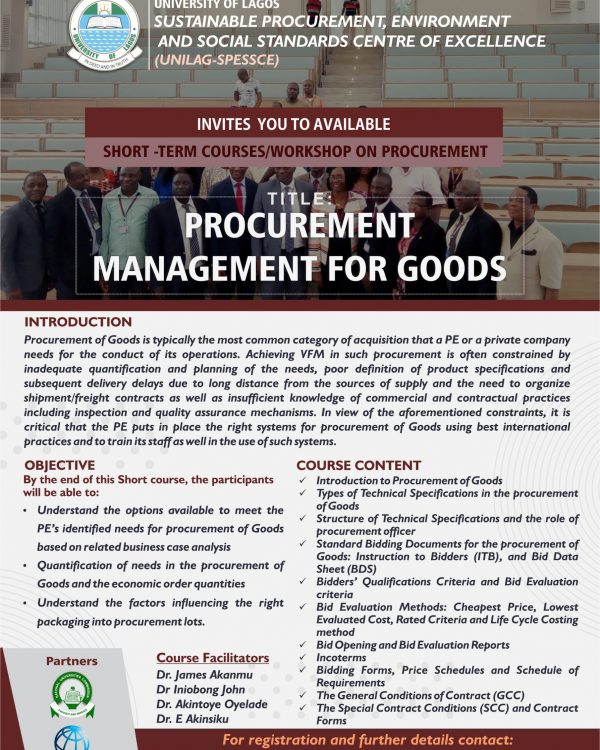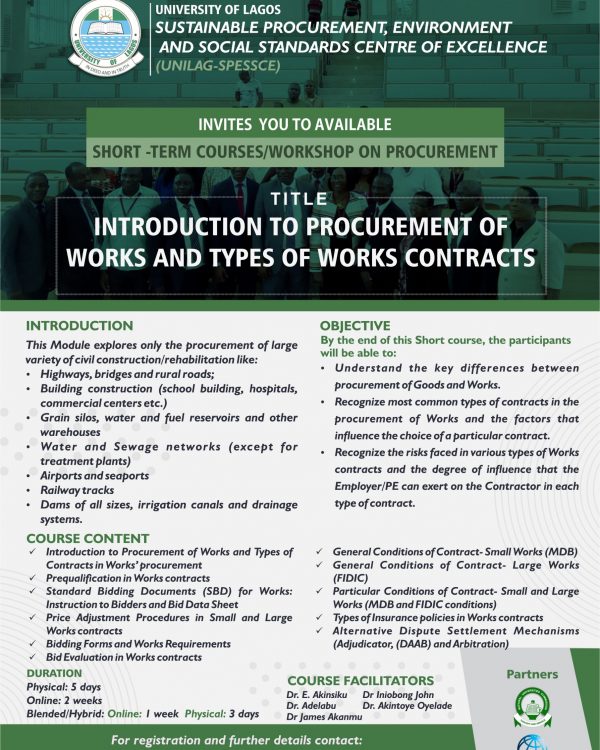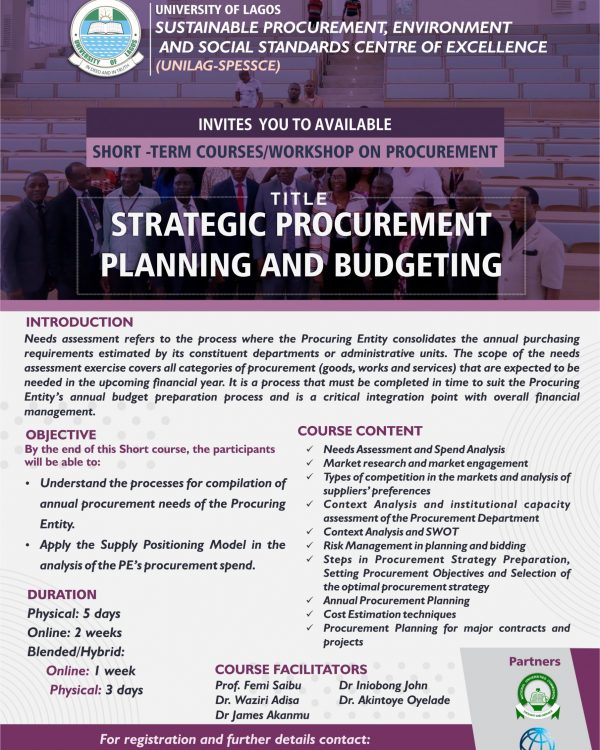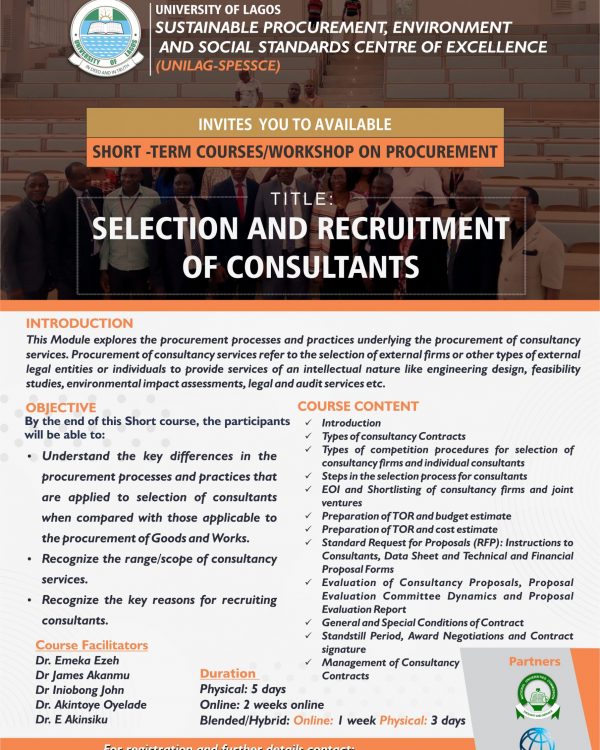Project development and execution, apart from the risk of undermining the environment and basic life support systems, can also undermine the societal social structure and support systems including traditions, culture, morals and character. Governments, politics and economy thrive on the basic building blocks of environment, culture, tradition and character. Infrastructural project development is supposed to act as the lubricant that oils the societal flywheel of prosperity. But if adequate precautions are not taken, they could also become a clog on the flywheel that will eventually destroy it. Thus, a project development and execution that undermines the basic societal building blocks sets both the society and the project itself on the path of self-destruct. The process of development must also lead to inclusiveness and guarantee existing social cohesion.
Social Standards
Courses in Social Standards
- Gender Based Violence in Project and Work Spaces (Upcoming Event)
- Labour Working Conditions
- Land Acquisition and Involuntary Resettlement
- Social Impact Assessment
- Gender Equity and Social Inclusion
- Access to Justice and Alternative Dispute Resolution
- Industrial Social Standards
- Gender and Agriculture
- Sexual and Gender Based Violence
- Rehabilitation of Drug Dependents, Abused/Assaulted Persons
- Rehabilitation of Refugees and Internally Displaced Persons
- Humanitarian Services and Management
- Child Labour & Street Children
- Gender, Environment and Climate Change
ENTRY REQUIREMENTS
Five (5) credit passes in WASCE, SSSCE, G.C.E. NECO O/Level subjects or its equivalent which must include ENGLISH LANGUAGE & MATHEMATICS and passes in three (3) other subjects at not more than two (2) sittings.
DURATION: Five Days
ENTRY REQUIREMENTS
Five (5) credit passes in WASCE, SSSCE, G.C.E. NECO O/Level subjects or its equivalent which must include ENGLISH LANGUAGE & MATHEMATICS and passes in three (3) other subjects at not more than two (2) sittings.
The following categories of applicants are eligible for consideration, and will be given preference in the following order:
I. Certificate in Social Work and/or Community Development from any approved institution recognized by the Senate of the University of Lagos.
II. Untrained serving Social Work and/or Community Development Workers who have requisite academic qualifications.
III. Mature candidates (30 years and over) with experience and qualification in Land Acquisition and Resettlement, Gender Based Management, Social Inclusion, employment and poverty alleviation etc. who may not have all requisite academic qualifications, but whose organizations stand to benefit from the programme.
DURATION: One Academic Session, Two (2) Semesters, 9 months
ENTRANCE EXAMINATION/INTERVIEW: Date and Time for the entrance examination will be publicized in due course
ENTRY REQUIREMENTS:
Five (5) credit passes in WASCE, SSSCE, G.C.E. NECO O/Level subjects or its equivalent which must include ENGLISH LANGUAGE & MATHEMATICS and passes in three (3) other subjects at not more than two (2) sittings.
The following categories of applicants are eligible for consideration, and will be given preference in the following order:
I. Certificate in Social Work and/or Community Development from any approved institution recognized by the Senate of the University of Lagos.
II. Untrained serving Social Work and/or Community Development Workers who have requisite academic qualifications.
III. Mature candidates (30 years and over) with experience and qualification in : employment, poverty and social exclusion, public health, education and science, and preservation of cultural individuality who may not have all requisite academic qualifications, but whose organizations stand to benefit from the programme.
DURATION: One Academic Session, Two (2) Semesters, 9 months
Note that the academic session may not necessary be at same time with the Full Time Conventional Academic programme
Short Course in Social Standards is a standalone programme that is designed in different modules in line with World Bank Environmental Social Frameworks and National Social Standards laws and regulations. At the end of each course certificate of participation would be awarded to successful candidates. In addition, it is designed to be face-to-face, blended and self-paced online such that busy executives can enroll for the Executive stream which will facilitate online course with discussion.
Advanced Certificate in Social Standards is tailored to give individuals an undeniable appreciation for the finer nuances of the niche area. This might be done in partnership with relevant professional and accredited body.
The professional certification course may qualify successful candidates for professional qualification and those that possess minimum university requirement may be admitted to postgraduate diploma course and subsequently master’s degree. In addition, it is designed to be face-to-face, blended and self-paced online such that busy executives can enroll for the Executive stream which will facilitated online course with discussion. While the standalone certificate courses may give candidates a boost toward professionalism, it may not count towards certification.
Postgraduate Diploma in Social Standards is the entry level to the higher degree programme in Social Standards (and the related courses). Both the full-time and part-time streams, once successfully completed, can be used as qualification (subject to fulfilling other qualifications) for enrolling in the Master Degree in Social Standards.
Master Degree Programme in Social Standards – is the highest degree for now (but can possibly lead to M.Phil. and Ph.D. degrees in Social Standards in the future). The Master Programme will be offered in two streams of executive and academic masters (full time and part-time).
Undergraduate Programme in Social Standards – is the Degree entry level for the Social Standards programmes. A successful completion of the B.Sc. programme can provide a trajectory to Postgraduate Diploma and Master Degrees in Social Standards. Generally, Tracks E, C and D provide both an academic and career trajectory in Social Standards, while track A offers a professional path alone.


